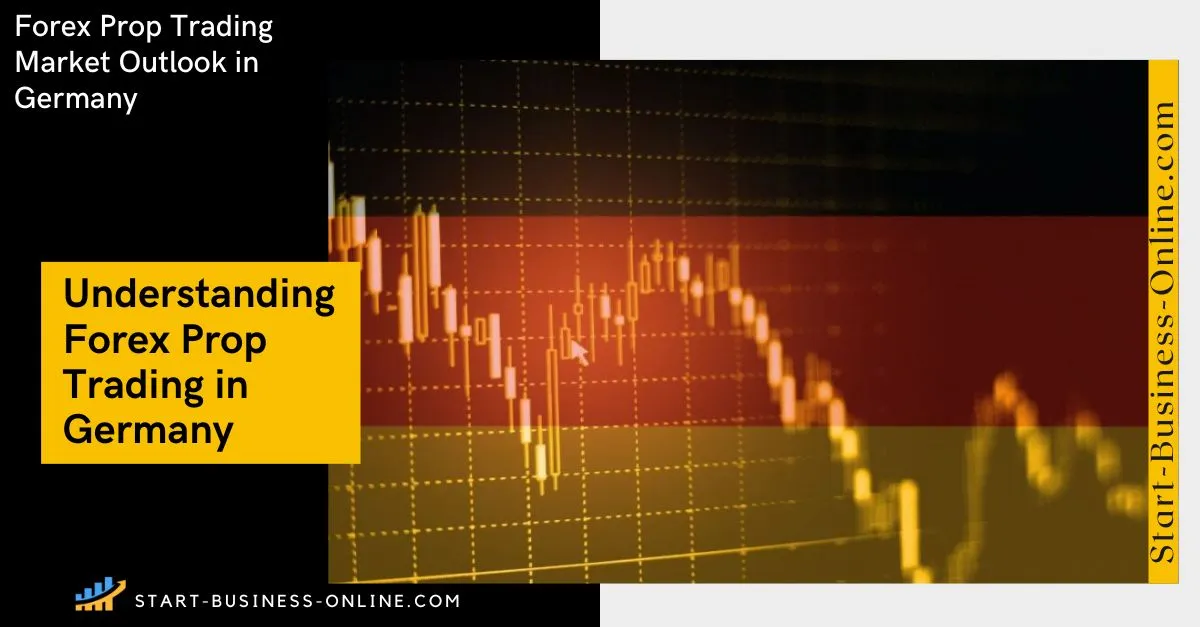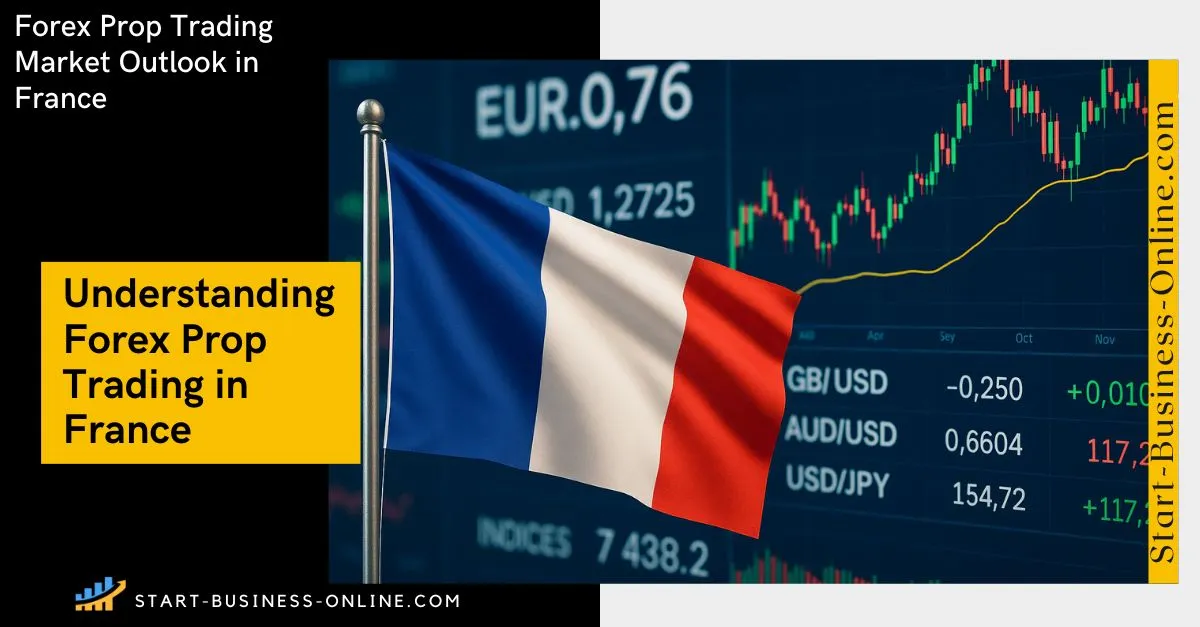The foreign exchange market, with its colossal $7.5 trillion daily trading volume (as of 2023, according to the Bank for International Settlements), remains one of the largest and most liquid financial markets in the world. Forex trading has captivated traders across the globe, including those in India. However, navigating the Indian forex landscape requires a thorough understanding of the country's specific regulations, challenges, and opportunities. This comprehensive guide will equip you with the knowledge needed to confidently engage in this dynamic market and take full advantage of its potential.
Page Contents
- 1. Introduction to the Forex Market
- 2. The Regulatory Landscape in India
- 3. Authorized Currency Pairs in India
- 4. Challenges for Indian Forex Traders
- 5. Opportunities in the Indian Forex Market
- 6. Prop Trading in India: A Closer Look
- 7. What is Prop Trading?
- 8. The Rise of Prop Trading in India
- 9. How Prop Trading Firms Work
- 10. Benefits of Prop Trading for Indian Traders
- 11. How to Choose the Right Prop Trading Firm in India
- 12. Leading Prop Trading Firms in India
- 13. The Future of Prop Trading in India
- 14. Regulations and Compliance
- 15. Withdrawing Profits and Tax Considerations
- 16. Conclusion
- 17. Prop Trading in India Frequently Asked Questions (FAQs)
View more
Introduction to the Forex Market
At its core, forex trading involves the simultaneous buying and selling of currency pairs, with traders aiming to profit from fluctuations in their exchange rates. This decentralized global market operates 24 hours a day, five days a week, offering traders continuous opportunities to buy and sell currencies as international markets overlap. The forex market is not just limited to banks and financial institutions; individual traders, including those in India, have become increasingly active participants.
However, while forex trading offers the potential for substantial gains, it also carries significant risks. In fact, according to a study by the Securities and Exchange Board of India (SEBI), over 80% of retail forex traders experience losses. The high volatility of the forex market, combined with leverage, can amplify both profits and losses. Understanding these risks, using risk management strategies, and making well-informed decisions are essential for long-term success.
The Regulatory Landscape in India

Forex trading in India operates within a stringent regulatory framework designed to protect traders and prevent illegal financial activities. Three main authorities oversee forex trading in India:
- Securities and Exchange Board of India (SEBI): Established in 1988, SEBI is the primary regulator for the securities market, including forex trading. It protects investor interests, promotes market development, and ensures fair practices in all trading activities. SEBI plays a critical role in regulating brokers and ensuring that they adhere to stringent financial norms.
- Foreign Exchange Management Act (FEMA) 1999: FEMA governs all foreign exchange transactions within India. It aims to facilitate external trade and payments and ensure the orderly development of India’s forex market. FEMA prohibits unauthorized trading platforms and restricts traders from using offshore brokers or trading on currency pairs not approved by Indian regulators. Its primary goal is to prevent illegal activities like money laundering and capital flight.
- Reserve Bank of India (RBI): The RBI, as India's central bank, plays a vital role in overseeing the forex market. It issues circulars and guidelines that control aspects like permissible currency pairs, leverage, margin requirements, and other market operations. The RBI is instrumental in maintaining financial stability within the forex market and ensuring traders comply with national financial regulations.
Authorized Currency Pairs in India
Indian forex traders are restricted to trading currency pairs that involve the Indian Rupee (INR), such as USD/INR, EUR/INR, GBP/INR, and JPY/INR. These restrictions are in place to limit exposure to highly speculative or exotic currency pairs and to ensure that trades align with India’s financial stability objectives.
Challenges for Indian Forex Traders
While forex trading in India is legal and regulated, traders face a set of unique challenges that can affect their profitability and trading experience:
- Limited Currency Pairs: SEBI and RBI regulations restrict traders to INR-based currency pairs. This limits diversification and the ability to trade popular major and exotic currency pairs that are available in global markets. For example, pairs like EUR/USD or GBP/USD are not accessible to Indian traders through regulated channels, potentially restricting profit opportunities.
- Legal Risks of Using Offshore Brokers: Engaging with unauthorized offshore brokers violates FEMA regulations. Although some offshore brokers may offer attractive trading conditions, using these platforms can result in severe legal consequences, including fines and imprisonment. It’s crucial to trade only through SEBI-registered brokers to avoid these risks.
- High Fees and Spreads: Due to limited competition, forex brokers in India often charge higher fees and offer wider spreads compared to international brokers. For instance, while the average spread for EUR/USD in global markets can be as low as 0.9 pips, in India, the spread for EUR/INR could be as high as 3.5 pips. Higher spreads directly impact profitability, especially for frequent traders or those using short-term strategies.
- Language and Cultural Barriers: Many Indian traders face difficulties accessing and interpreting global trading information due to language differences. Much of the available forex education content is in English, which may not be accessible to all traders in India, creating a barrier to learning and improving trading skills.
Opportunities in the Indian Forex Market
Despite the challenges, there are numerous opportunities for traders in India to succeed in the forex market:
- Growth of Prop Trading: Proprietary trading (prop trading) firms are becoming an attractive option for Indian traders. These firms provide traders with capital, training, and mentorship, allowing them to trade without risking their own funds. The prop trading industry in India has been growing steadily, with a year-on-year increase of 25% in 2023. Prop trading enables skilled traders to maximize their potential while minimizing personal financial risk.
- Technological Advancements: With the rise of advanced trading platforms, algorithmic trading, and artificial intelligence tools, Indian traders now have access to cutting-edge resources that were previously reserved for institutional players. These tools empower traders to make more informed decisions, use automated strategies, and improve their overall trading performance.
- Increasing Market Participation: The number of retail forex traders in India has surged in recent years, contributing to increased market liquidity and trading opportunities. As of 2024, India boasts over 10 million active forex traders, making it one of the largest retail forex markets globally. This growing participation reflects the increasing awareness and interest in forex trading as a viable income stream for individuals.
Prop Trading in India: A Closer Look
India has seen a remarkable increase in interest in prop trading in recent years. Searches for "prop trading firms" have skyrocketed, with over 4,400 monthly searches recorded in March 2024—second only to the United States.
Proprietary trading firms (prop firms) have become key players in India’s financial landscape, offering a unique pathway for talented traders to access capital and enhance their trading careers. In this model, prop firms provide capital for traders to use, and profits are shared between the trader and the firm, offering a compelling alternative to traditional retail trading. For traders without substantial personal capital, or those seeking a more structured and supportive environment, prop trading offers exciting opportunities.
What is Prop Trading?
At its core, proprietary trading, or prop trading, involves a financial firm or a trading company using its own capital to trade in the markets. In the case of prop trading firms, they extend their capital to skilled traders who can then take positions in financial markets—often in forex, stocks, commodities, or derivatives. Unlike independent retail traders, who risk their own funds, traders in prop firms primarily risk the firm's capital. In exchange for using the firm's money, profits are shared based on a pre-agreed percentage, which varies between firms.
The Search Demand for the Term “Prop Firm” Increased by 8,409% between January 2020 and March 2024.
In India, the rise of prop trading has been particularly significant in the forex market, where traders are increasingly seeking out firms that can provide them with capital and professional-grade trading infrastructure. Prop trading offers a way to trade at a larger scale without risking personal funds, which is particularly appealing in markets like India, where access to large amounts of personal trading capital can be a challenge.
The Rise of Prop Trading in India
India has seen a remarkable increase in interest in prop trading in recent years. Searches for "prop trading firms" have skyrocketed, with over 4,400 monthly searches recorded in March 2024—second only to the United States. This surge in interest reflects a broader trend: many traders in India see prop trading as a potential path to financial success, particularly in the face of inflation and tight personal budgets.
Forex trading stands out as the most searched type of trading, beating even futures and stocks. Indian traders are increasingly drawn to forex prop trading due to its high liquidity, accessibility, and potential for rapid returns. Prop firms provide the capital to allow these traders to maximize their potential without the high risks associated with trading personal funds.
India's population size and economic realities may be key factors driving the popularity of prop trading. With average yearly incomes in India being lower than in many developed countries, many see prop trading as a chance to break free from financial constraints. The promise of higher capital, combined with a professional support structure, makes prop trading highly appealing to traders who are eager to scale their operations.
How Prop Trading Firms Work
Prop trading firms essentially operate as partners with skilled traders. They provide several critical resources and benefits to traders, including:
- Capital: The most significant advantage of joining a prop firm is access to capital. Traders often receive access to much larger sums than they could afford to invest independently. This access to capital allows traders to take larger positions in the market, increasing the potential for profits. For instance, a trader with a personal account of $5,000 might be able to trade with up to $100,000 or more when trading through a prop firm, depending on the firm’s funding model and risk tolerance. Many firms offer different tiers of funding, where successful traders can scale up over time. For example, traders might start with a smaller capital pool and, as they prove their profitability, gain access to larger sums. This tiered structure ensures that only skilled and disciplined traders are entrusted with the firm's resources.
- Infrastructure and Tools: Prop trading firms offer professional-grade trading platforms, real-time market data, and sophisticated analytical tools that are often too expensive for individual traders to access independently. These tools give traders a competitive edge by providing deep market insights, faster execution times, and algorithmic trading capabilities. Additionally, many prop firms provide traders with access to algorithmic trading tools, allowing them to automate strategies and capitalize on market inefficiencies more effectively than they could on their own. Algorithmic and high-frequency trading have been growing trends in India, and prop firms provide the ideal infrastructure for traders looking to enter these advanced markets.
- Risk Management: A key responsibility of prop firms is managing risk. They have strict risk management protocols in place to monitor trading activity and prevent excessive losses. For instance, prop firms typically impose daily and overall loss limits on their traders, ensuring that both the trader and the firm are protected from catastrophic losses. These firms use advanced risk monitoring systems to track performance, manage leverage, and enforce stop-loss limits. Traders who exceed their loss thresholds may be temporarily suspended or removed from the firm. This discipline instills professional trading habits and encourages traders to develop sound risk management strategies of their own.
- Training and Mentorship: Another major benefit of joining a prop firm is the opportunity for continuous learning and development. Many firms offer comprehensive training programs, especially for newer traders. These programs might include everything from technical analysis, risk management, and trading psychology to advanced strategies like algorithmic trading. Mentorship is another key feature of many prop firms. Experienced traders often serve as mentors, guiding less experienced traders through the intricacies of the market. This hands-on guidance can significantly accelerate the development of a trader’s skills, helping them to avoid common pitfalls and improve their performance.
- Profit Sharing: Prop trading firms operate on a profit-sharing model. After traders use the firm’s capital to generate profits, the earnings are split between the firm and the trader. The exact profit split can vary depending on the firm and the trader's performance but typically ranges from 50% to 80% for the trader. Higher performance and consistent profitability often lead to more favorable profit-sharing arrangements. Profit-sharing provides a significant incentive for traders to maximize their success. Unlike salaried jobs, where income is fixed, prop trading offers the potential for much higher earnings based on skill and market success. This merit-based system is a key reason why many talented traders are drawn to prop firms.
Benefits of Prop Trading for Indian Traders
For Indian traders, prop trading offers a number of unique benefits:
- No Need for Personal Capital: One of the biggest barriers to entry in forex and other markets is the need for substantial personal capital. Prop firms eliminate this hurdle by providing the capital, enabling traders to scale up their trading without risking their own money.
- Reduced Financial Risk: While trading always involves risk, the trader’s personal financial exposure is minimized because they are trading with the firm’s money. This means that traders can focus on developing and executing their strategies without the emotional pressure of risking personal funds.
- Increased Profit Potential: With access to larger capital pools, traders can place bigger trades and potentially earn significantly more than they could with their own funds. Profit-sharing arrangements incentivize traders to maximize their success, often allowing them to take home a significant percentage of the profits they generate.
- Professional Development: Prop firms invest in the development of their traders, providing them with the tools, training, and mentorship needed to become successful. This professional environment helps traders develop sound risk management practices, discipline, and market knowledge.
- Community and Collaboration: Many prop firms foster a collaborative environment where traders can learn from each other, share insights, and work together to improve performance. This sense of community can be invaluable, especially for traders who may otherwise be isolated in their own trading journeys.
How to Choose the Right Prop Trading Firm in India
When selecting a prop trading firm, Indian traders should carefully evaluate their options to ensure they are joining a reputable firm that aligns with their trading goals. Here are some factors to consider:
- Capitalization and Funding Programs: Look for firms that offer adequate capitalization and flexible funding models. Some firms provide immediate funding, while others may have staged funding programs that increase as you demonstrate your profitability. Consider how much capital is offered and how easy it is to scale up.
- Profit Splits and Fees: Compare the profit-sharing models of different firms. Some firms may offer as high as 80% of profits to the trader, while others might have lower splits. Also, be aware of any hidden fees, such as platform or data fees, which can eat into your profits. A firm with a transparent fee structure and favorable profit split is ideal.
- Training and Mentorship Programs: Especially for newer traders, it’s important to join a firm that offers ongoing training and mentorship. Firms that invest in the development of their traders are more likely to foster long-term success. Consider the quality of the mentorship and training materials offered, and whether the firm provides regular feedback on performance.
- Risk Management Policies: Make sure the firm enforces reasonable risk management policies that align with your trading style. Understand the daily loss limits, maximum drawdowns, and other risk controls in place. Joining a firm with clear and fair risk management systems will help protect both you and the firm from unnecessary losses.
- Technology and Trading Platforms: The quality of a firm’s trading platform and available tools can significantly impact your trading experience. Evaluate the technology offered by the firm, including the speed of execution, access to real-time market data, and available analytical tools. For algo traders, check whether the firm supports automated trading strategies.
- Reputation and Compliance: Reputation matters in the world of prop trading. Look for reviews, testimonials, and online forums where traders share their experiences. Additionally, ensure the firm is compliant with SEBI regulations in India, as this will protect you from potential legal and financial risks. Transparency, solid customer support, and a good track record are important signs of a reputable firm.
Leading Prop Trading Firms in India

There are several well-established prop trading firms that operate in India, offering a range of services to both novice and experienced traders. These firms differ in terms of funding options, profit-sharing models, and the type of markets they specialize in. Some of the top firms, as reviewed and classified by our resident team of experts, include:
The Best Prop Trading Firms in 2026
Rating breakdown
Things we liked:
Unlimited time for completionReal Funding and Daily Payouts
Things we didn't like:
High challenge difficultyRating breakdown
Things we liked:
Unlimited time for completionReal Funding and Daily Payouts
Things we didn't like:
Futures onlyNo free retry
Rating breakdown
Things we liked:
Up to 100% Profit SplitUnlimited Number of Trading Days
Fast Payouts
Things we didn't like:
10% Max Loss Limit on Accounts$10 Withdrawal Processing Fee
No swap free accounts
Each of these firms offers distinct features, from their funding programs to their evaluation processes, so it’s important for traders to choose the one that best suits their needs and goals.
| Prop Firm | Prop firms that restrict clients from India |
|---|---|
| FTMO | |
| TX3 Funding (Toptier Trader Rebrand) |
The Future of Prop Trading in India
Prop trading in India is poised for even more growth in the coming years. With increasing retail participation, technological advancements, and greater awareness of the opportunities prop trading offers, more traders are likely to explore this model as a viable career path. The Indian government’s focus on digitizing the economy and improving financial literacy may also contribute to the rise of prop trading, especially as more people seek alternative income streams and investment opportunities.
As the industry matures, we can expect further innovation in trading technologies, including more advanced algorithms and AI-based systems that help traders gain an edge in the markets. We may also see new funding models and training programs that cater specifically to the Indian market, making prop trading even more accessible to the country’s growing base of aspiring traders.
Regulations and Compliance
Prop trading in India falls under SEBI’s regulatory purview. Firms must adhere to registration requirements, risk management guidelines, and algorithmic trading rules. Indian traders should ensure that the prop firms they choose are compliant with SEBI regulations to avoid legal issues and ensure the safety of their capital.
Withdrawing Profits and Tax Considerations
Withdrawing profits from prop trading accounts involves following the specific withdrawal procedures set by the firm, which may include compliance with FEMA guidelines. Additionally, forex trading profits are subject to income tax in India. Traders should maintain thorough records of their trading activities and consult a tax professional to ensure proper tax filing and explore potential deductions.
Conclusion
Prop trading presents a tremendous opportunity for Indian traders to take their trading careers to the next level. By providing access to capital, cutting-edge tools, and a structured environment for growth, prop firms enable traders to maximize their potential without taking on the financial risks associated with independent trading. Whether you’re an experienced trader looking to scale up or a beginner eager to learn the ropes, prop trading can offer a pathway to financial success.
As the prop trading industry continues to grow and evolve, Indian traders are well-positioned to take advantage of the resources, mentorship, and capital that these firms offer. By choosing the right prop firm, practicing disciplined trading, and continuously refining your skills, you can thrive in this dynamic and fast-paced world.
In a nutshell, India’s forex market offers traders a unique and potentially rewarding landscape. By understanding the regulatory framework, being aware of the challenges, and capitalizing on the opportunities available, you can navigate this market effectively. Whether you choose to trade independently or through a prop firm, remember to prioritize legal compliance, manage risks carefully, and commit to continuous learning. With the right approach, India’s forex and prop trading market could be your gateway to financial success.
Prop Trading in India Frequently Asked Questions (FAQs)
Yes, forex trading is legal when conducted through authorized channels and within India’s regulatory framework overseen by SEBI, FEMA, and the RBI.
Trading with unauthorized international brokers can result in legal issues, lack of investor protection, and potential exposure to fraud.
Most firms have their own withdrawal process, which typically includes submitting a withdrawal request, adhering to FEMA guidelines, and selecting a payment method such as bank transfer or e-wallet.
Consult with a tax advisor to understand your tax obligations. You’ll likely need to determine your residential status, categorize your income as business income or capital gains, and file the appropriate income tax return (ITR) form.
FTMO is restricted in India because the Reserve Bank of India (RBI) has issued warnings about the risks of trading forex through unregulated proprietary trading firms. To comply with Indian financial regulations, FTMO decided not to accept clients from India.
Using a VPN or falsifying your location to bypass restrictions violates FTMO’s terms and conditions. If discovered, this can lead to account closure or the forfeiture of any funds or profits. It's best to follow regulations and consider alternative options.









